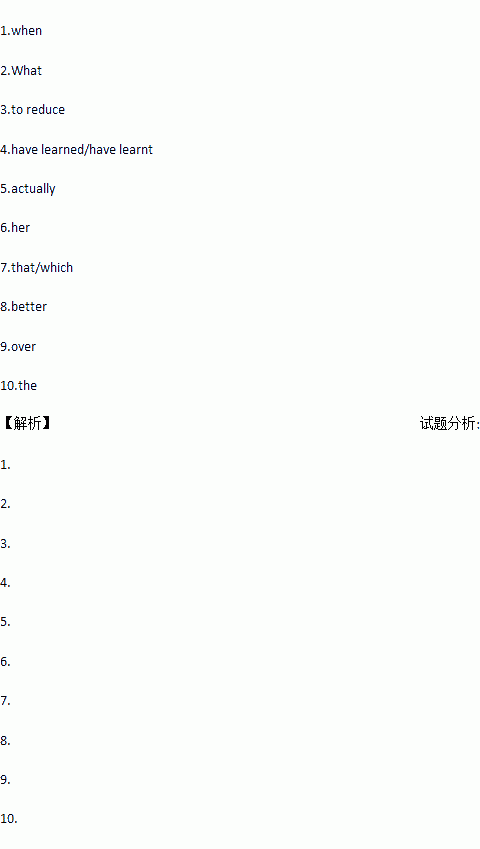题目内容
This is a story of a little girl and her grandmother. One day, I was looking for medicine in a store1.I saw an old woman with a little girl in her arms. The little girl asked her grandmother, " 2.do you think about a brand new face cream that is supposed3.(reduce) laugh lines?" The grandmother just laughed and said, "Sweetie, I am 80 years old. I 4. (learn) to love all my laugh lines. I have 5. (actual) earned every one of them. "Then just to prove her point, she laughed again and amused 6.granddaughter. The laughter of the little girl and the old woman mixed together with a sound 7. was as musical and beautiful as an angel's song.
I left the store feeling a lot 8. (good) about all the laugh lines I had earned in my own life. I remembered all the beautiful faces I had seen 9. the years. Their beauty is ageless no matter how old they are. May you have a time in your life earning10.most attractive laugh lines.

